election2018
Latest

DOJ report finds foreign meddling had no impact on midterm elections
If attempts at election meddling had any tangible effect on the US midterms, you won't hear about it from some officials. The Departments of Justice and Homeland Security have submitted a joint report to President Trump saying there was no evidence a foreign government or agency had a "material impact" on the infrastructures of the 2018 vote, including campaigns and political bodies. The actual conclusions are classified, but they're consistent with what the government said after the elections, the Justice Department said.

Pentagon preps cyberattack in case Russia interferes with elections
There may not be any immediate evidence of Russia directly meddling with the US midterm elections, but the Department of Defense is apparently ready to strike back if it happens. Anonymous officials talking to the Center for Public Integrity and the Daily Beast say the Pentagon and intelligence agencies have agreed on the core terms of a retaliatory cyberattack in the event Russia tries a bold move. The exact nature of the attack is unsurprisingly a secret, but hackers have reportedly received authority to breach key Russian systems in advance to make sure any attack moves quickly.

Apple News app will provide real-time results on Election Day
Come November 6th, Apple will turn its News app into election central. According to TechCrunch, the company is planning to launch a new Election Night section that will display live results, highlight updates to key races and share major stories from major news outlets. The Election Night tab will appear in place of the Midterm Elections section in the app starting at 8 PM ET on election day.
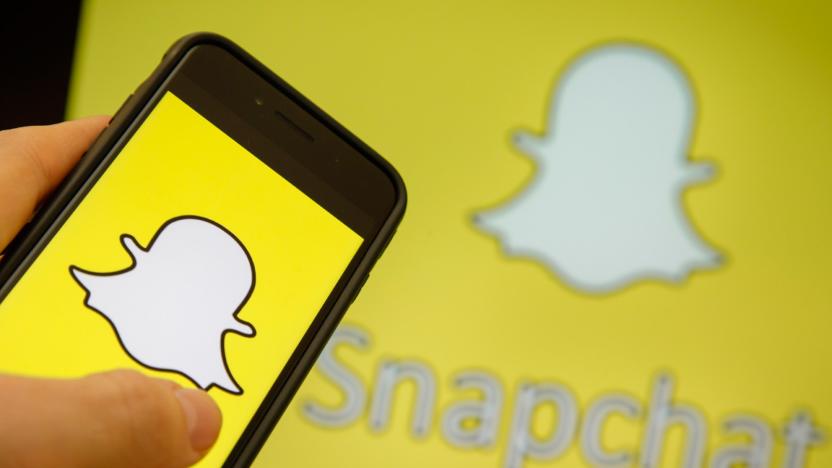
Snapchat helped register 418,000 US voters in two weeks
It's easy to be cynical when you hear about voter registration campaigns from social networks. How many people really sign up because of a digital nudge? Quite a few, apparently. Snap told the New York Times that its Snapchat campaign had helped 418,000 people register in the space of a two-week period, many of them in hotly contested states like Florida, Georgia, Ohio and Texas. The initiative had combined a registration button on users' profiles with snap videos asking them to register.

US targets individual Russians in fight against election interference
The US isn't limited to fighting election interference campaigns on its own soil. The New York Times has learned that Cyber Command is conducting the country's first known overseas operation to protect American voting against online meddling. The initiative reportedly entails deterring individual Russian operatives spreading disinformation by making it clear that US agents are tracking their activity. In theory, this will force the Russians to change their behavior without prompting an escalation that could lead to power grid attacks and other much more serious campaigns.

Russian woman indicted for interfering with 2018 US midterm elections
US officials aren't waiting until after the midterm elections to take legal action against interference efforts. Federal authorities have charged Russian national Elena Khusyaynova for allegedly serving as the primary accountant for Project Lakhta, an influence campaign that targeted the US midterms as well as foreigners in the US, European Union member states, the Ukraine and even some Russian audiences. Khusyaynova reportedly managed expenses for activists, social networking ads and news post promotions, domain name registrations and proxy servers.

Twitter publishes over 10 million tweets linked to election meddling
Twitter has previously cracked down on accounts linked to election interference campaigns and provided snippets of their tweets, but now it's flinging the gates wide open. The social network has published data sets with over 10 million tweets from 4,611 accounts behind "inauthentic" activity, 3,841 of which are from the Russia-linked Internet Research Agency with the remaining 770 possibly tied to Iran. The library also includes over 2 million GIFs, videos and recorded Periscope livestreams. As for why Twitter is doing this? Simply speaking, it can't study this data all by itself.
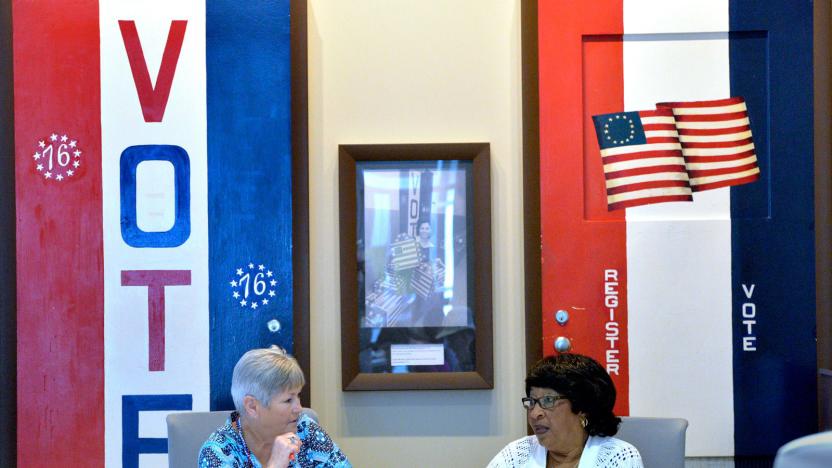
USA Today thinks chat bots can keep voters informed during midterms
USA Today is no stranger to using technology as a hook for political coverage, but this time it could be particularly helpful in performing your civic duty. It's rolling out chat bots across its properties that will help you keep tabs on various aspects of the 2018 midterm elections, including national news, regional election info and the hot-button issues of the day. And crucially, the bots will help you find polling stations -- you'll know both where local politicians stand as well as where to vote on November 6th.

Instagram uses Stories to encourage voter registration
The US midterm election is right around the corner, and Instagram is doing its part to encourage as many people as possible to register to vote. It launched a registration push Tuesday, helping 'Grammers get the information they need to sign up to vote using ads in feeds and stories.

Facebook expands security measures for political campaign staff
The US midterm elections are just weeks away, and Facebook is still scrambling to prevent election meddling with every means at its disposal. It's launching a pilot program that will expand its protections for American political campaigns. Candidates at the federal or state levels, as well as their staff and party committees, can apply to receive extra protection for their Pages and individual accounts. Facebook will help activate two-factor authentication, proactively monitor accounts (through both automation and human staff), and prioritize reports of suspicious activity from campaign members. If there's an attack against one person, Facebook will check other related accounts.

Mark Zuckerberg op-ed describes the election interference 'arms race'
Ahead of Senate hearings that will see Facebook COO Sheryl Sandberg and Twitter CEO Jack Dorsey testifying about foreign election interference, Facebook's CEO Mark Zuckerberg has chimed in via an op-ed in the Washington Post. While we wait to watch the hearings in the morning, you can have a look at his essay, which is mostly a rehash of things we've been hearing about for months in terms of fighting fake accounts, fact checking hoaxes, tracking influence networks and the efforts it has made around elections in France, Germany, Mexico and Italy. Zuckerberg said that Facebook has strengthened its defenses, but it remains to be seen how that will go over with members of Congress and the public. In closing, the CEO said "It's an arms race, and it will take the combined forces of the U.S. private and public sectors to protect America's democracy from outside interference." Whether or not Facebook has done enough, if there are other weak points allowing for misinformation and propaganda -- as researchers found when they were easily able to buy Google ads for Russian troll-inspired material using rubles and known IRA identities -- it may not matter.
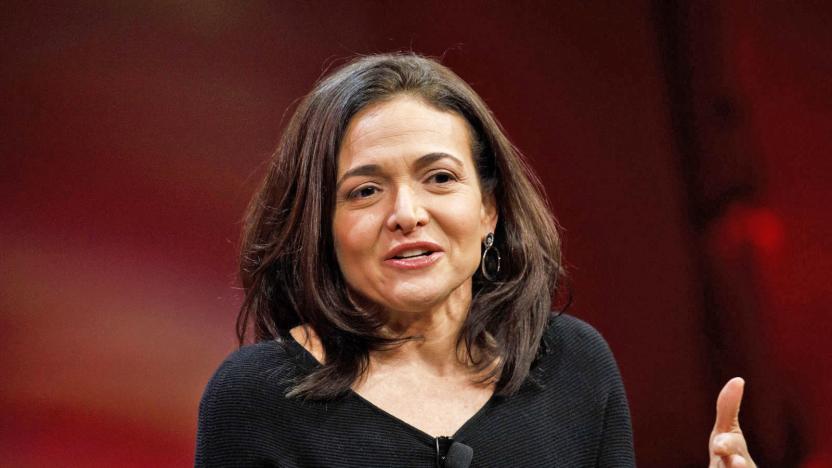
Facebook tells Senate it needs help stopping election interference
Facebook has been scrambling to fight election meddling ahead of the 2018 midterms, but it doesn't want to go alone. The social network has released COO Sheryl Sandberg's prepared testimony ahead of her Senate appearance on September 5th, and she uses the presentation to call for more government help in battling interference from countries like Russia. Facebook's staffers "can't stop interference by ourselves," she said, noting that Facebook doesn't have "all the investigative tools" of government and can't always identify perpetrators or their motivations.

Twitter will also label issue ads under its new advertising policy
Back in May, Twitter laid out its upcoming policies to improve transparency for election-related ads aimed at US citizens leading up to the midterms this fall. In addition to rules dictating how advertisers must present themselves on the platform, the social network is requiring them to certify their identity and prove that they live in America. While news organizations can petition Twitter to be exempt from these restrictions, everyone else who wants to advertise election-related material -- including, now, on hot-button issues -- must be certified by the social network by September 30th or their advertisements won't go up.
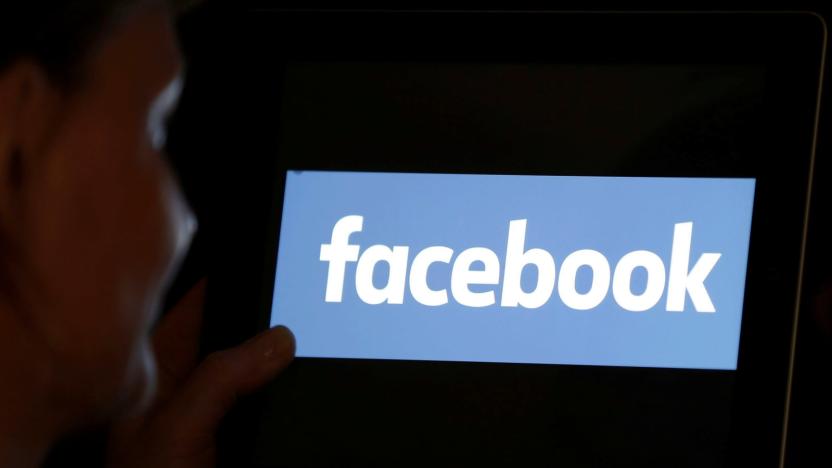
Facebook makes it easier for researchers to analyze its ad archive
Back in May, Facebook made good on earlier promises and started labeling US election- and issue-related ads with who paid for them, and also linked to a searchable archive of such advertisements. Today, the platform started releasing an API that researcher and journalists can use to more easily analyze ads appearing on Facebook, though it's only open to certain groups and individuals during an initial test period.

California primary candidate faced cyberattacks for a year
It's not just sitting politicians that have faced cyberattacks ahead of the 2018 midterm elections. Former California congressional primary candidate Dr. Hans Keirstead has reported to Rolling Stone that his campaign faced hacking attempts for roughly a year, starting in August 2017. They began with phishing emails sent to Keirstead's address at his biomedical company in a briefly successful attempt to obtain his login details. By December, the intruders started direct attempts to hack Keirstead's campaign, including over 130,000 "brute force" login attempts, attempts to hijack his Twitter account and short-lived hacks against his company.
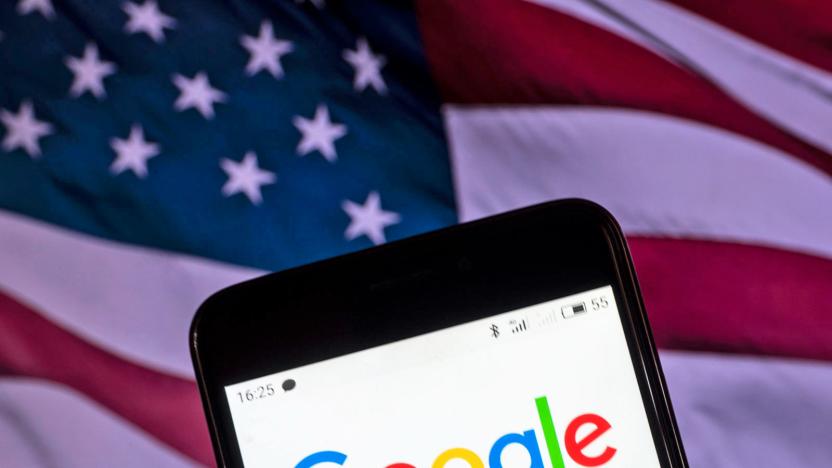
Google publishes its own archive of US political ads
In the months leading up to the US midterm elections, the big online sites that inadvertently hosted the worst manipulation back in 2016, like Facebook and Twitter, have adopted new advertising policies to enforce transparency. So has Google, which has followed Facebook in preparing another resource for the public: An archive of ads. Today, the company published a database of all the US political advertisements that have appeared on its platforms.
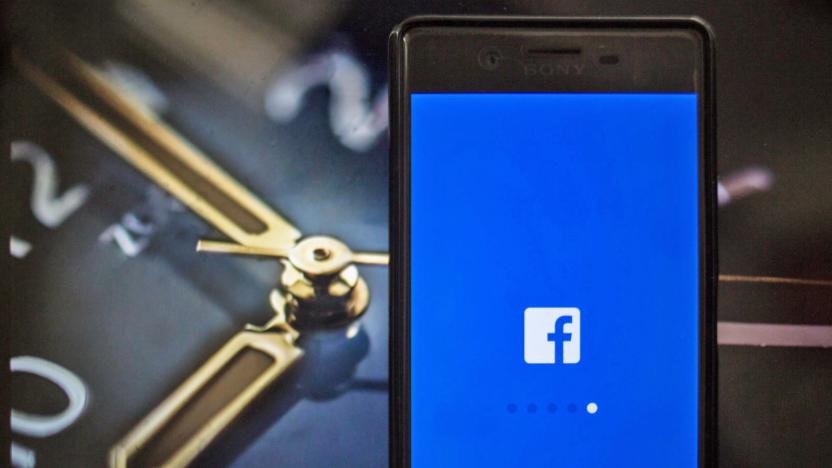
Facebook's tougher policies delay Hispanic political ads
Facebook's stricter ad policies may be creating further complications for legitimate campaigns. Strategists for Hispanic organizations have told the Washington Post that their political ads typically require "several days" to reach Facebook simply because they're targeting a Spanish-language audience. As the social network's policies require it to both review ads targeted at ethnic groups and fight racial discrimination, the process takes considerably more time than ads aimed at a general audience.

Facebook removes fake accounts targeting 2018 US midterms
History appears to be repeating itself: Facebook has discovered evidence of a "coordinated" election influence campaign targeting the 2018 US midterm elections. The social network said it had removed 32 bogus Pages and accounts (created between March 2017 and May 2018) from both its main service and Instagram. While it didn't yet know who was responsible for the campaign, the accounts and their ads tried to stoke social tensions in the same way as the Russia-linked ads from 2016 -- and the creators went out of their way to hide their origins.

Twitter puts verification fixes on hold as elections loom
Twitter has spent the past several months trying to fix its verification mess, but it looks like you'll have to wait a while longer for a solution. New product lead Kayvon Beykpour has announced that Twitter is putting its verification reform efforts on hold to focus on "information quality" in the run-up to the US mid-term elections. The move is meant to help the social network "move faster" on areas it thinks are "most important," Beykpour said.
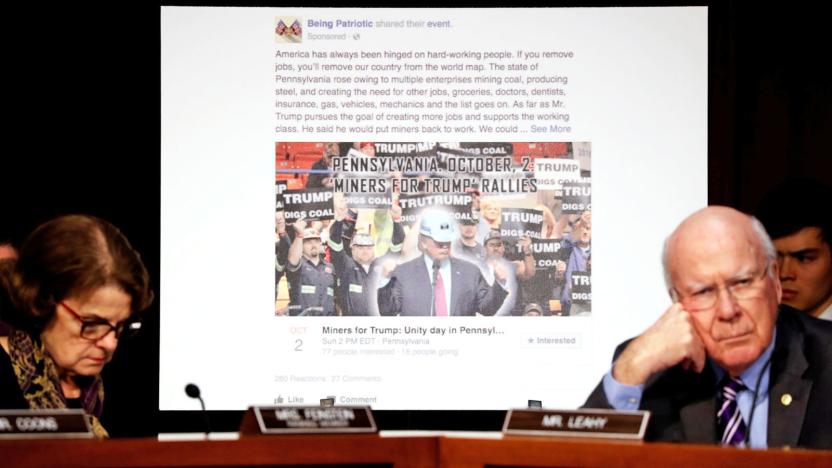
Twitter initiates its new campaign ad policy
Social media became a battleground in the 2016 election with bot accounts pushing fake news and tons of advertising trying to influence US voters. In the lead-up to the 2018 midterms, platforms have announced new rules to improve transparency. Today, just as Facebook implemented its own political advertising disclosures, Twitter has adopted changes to how it handles campaign advertisements to vet buyers.




